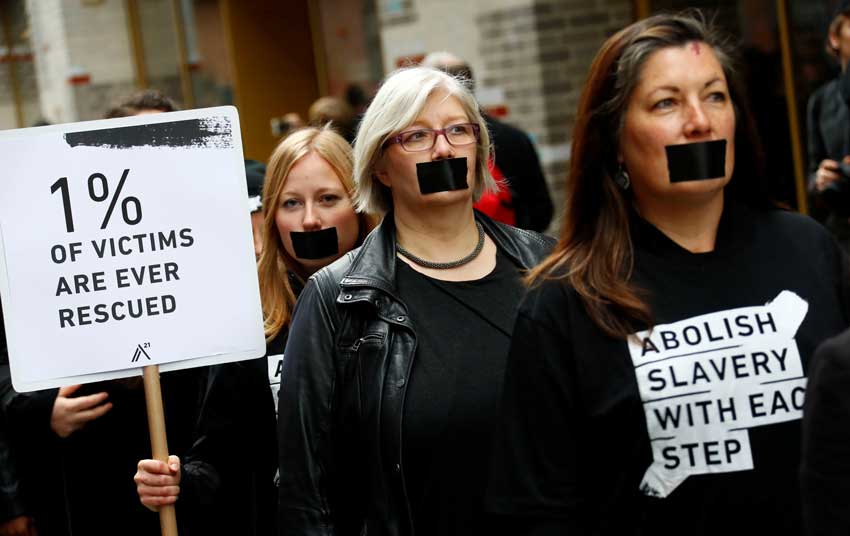
Slavery still exists, here in Australia, and it must end
United Nations World Day Against Trafficking Persons on 30 July is a global day to recognise human trafficking and modern slavery.
More importantly, this day provides an opportunity to highlight actions that can be taken to address these human rights abuses. This year’s theme, ‘Victims Voices Lead the Way,’ recognises the important contributions survivors of human trafficking and modern slavery can make towards policies and programs designed to assist them.
Here in Australia, an outstanding issue impacting survivors of human trafficking and modern slavery is the lack of victim compensation available via the Commonwealth.
In 2000, Australia signed the Protocol to Prevent, Suppress and Punish Trafficking in Persons (Protocol) which was ratified in 2004.
last week, a Victorian couple were sentenced to jail for intentionally possessing and exercising the right of ownership over a slave between 2007 and 2015. The victim was beaten, cut and burned by her captors…
An objective of the Protocol is to protect and assist victims of trafficking in persons with full respect for their human rights.
Specifically, Article 6 (6) requires: Each State Party shall ensure that its domestic legal system contains measures that offer victims of trafficking in persons the possibility of obtaining compensation for damage suffered. However, to date, Australian victims of Commonwealth human trafficking and modern slavery crimes cannot access compensation because no such Commonwealth scheme exists.
For more than ten years, civil society members of the Australian Government’s National Roundtable on People Trafficking and Slavery have advocated to both Labor and Liberal governments that a compensation scheme be established.
In 2017, the Parliamentary Joint Standing Committee on Foreign Affairs, Defence and Trade recommended the establishment of a National Compensation Scheme for victims of modern slavery in their report, Hidden in Plain Sight: An inquiry into establishing a Modern Slavery Act in Australia.
In 2012, the United Nations Special Rapporteur on Trafficking in Persons, Joy Ngozi Ezeilo noted in her mission report to the UN Human Rights Council that a comprehensive national framework for victim compensation would be in accordance with Australia’s obligations to remedies under the Protocol and international human rights law.
A review of state and territory victims of crime financial assistance schemes and its availability to victims and survivors of modern slavery is included in Australia’s National Action Plan to Combat Modern Slavery 2020 – 2025.
It’s good that compensation has not fallen off the agenda, however, state schemes simply do not offer an appropriate remedy for Commonwealth victims of Commonwealth crimes.
Last week, a Victorian couple were sentenced to jail for intentionally possessing and exercising the right of ownership over a slave between 2007 and 2015.
The victim in this case was beaten, cut and burned by her captors and spent two months recovering in hospital. She has been left with permanent health problems. Also, this year, a New South Wales couple pleaded guilty to charges of forced labour and harbouring a woman in their home and business for two years.
In 2019, a Queensland couple were jailed for forcing a woman to work as their domestic servant for eight years. In that case the judge noted that the woman was made “to feel of little value”.
These are just a few of the victims that should have the opportunity to seek compensation for their physical or psychological injuries, emotional suffering, economic loss and violation of their fundamental rights. Australia can show it values victims of human trafficking and modern slavery by establishing an expeditious, fair and accessible Commonwealth Victim Compensation Scheme.
It’s time for the Commonwealth to close its own remedy gap for victims of human trafficking and modern slavery.
Jenny Stanger is the Executive Manager of the Archdiocese of Sydney’s Anti-Slavery Taskforce
Related:
